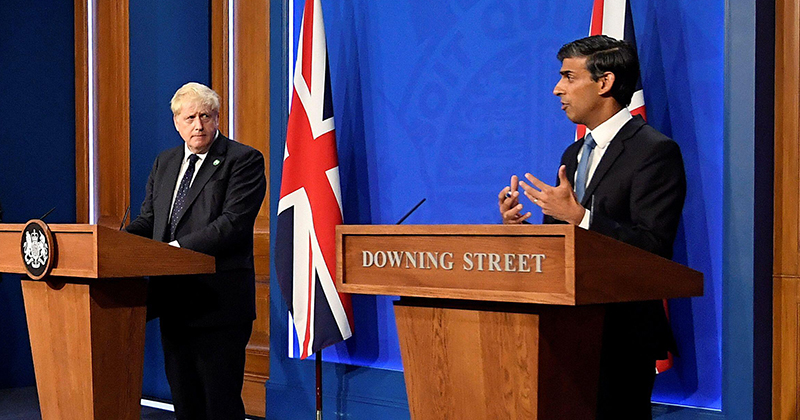The government will not compensate colleges for national insurance contribution increases even though it is helping schools, FE Week can reveal. The “indefensible” move will hit college budgets by an estimated £30 million.
Boris Johnson this week set out plans to increase national insurance contributions from both employees and employers by 1.25 percentage points from next April.
The so-called “health and social care levy”, which the government said would raise around £12 billion in extra funding each year, will be used to “tackle Covid backlogs” and reform adult social care.
However, the government will use £1.8 billion of the £12 billion to “compensate departments and other public sector employers” in England at the next spending review for the “increased cost of the levy”.
But in a move that makes “no sense” to the membership body for the sector, the Treasury told FE Week that colleges would not benefit from the compensation scheme even though schools and all other public sector employers will.
A spokesperson said this was because colleges are technically classified as private sector organisations by the Office for National Statistics (ONS).
Janet Meenaghan, chief executive at Inspire Education Group, which includes Peterborough and Stamford Colleges, said this was “yet another indefensible example of unfair treatment against colleges”. She called on ministers to reverse the decision “immediately”.
She added: “Not only have we taken more than our fair share of funding cuts, we also face a relentless onslaught of rising costs which are completely out of our control. The Treasury is penalising my staff and students just because we’re not a school.”
Julian Gravatt, deputy chief executive of the Association of Colleges, was also outraged. He said: “There is no sense in government using an accounting technicality to justify excluding college students from the benefits of the national insurance compensation arrangements when these benefits are being provided to students in government-controlled academies.
“We have seen this differential treatment in the past, but we had seen signs of a change.”
Early analysis by Gravatt found that the national insurance contributions increase will cost colleges around £30 million, or 0.45 per cent, of their £6.6 billion estimated total income.
He warned that the costs which college leaders will face will “inevitably force difficult cuts elsewhere”.
A Treasury spokesperson tried to defend the decision by summarising the investment it has put into FE in recent years.
“Our support for further education colleges includes nearly £300 million in last year’s spending review and a commitment to £1.5 billion of capital funding to bring all college estates in England up to a good condition,” they said.
“The health and social care levy will raise £12 billion a year for the NHS and social care. Everyone is being asked to contribute, in a fair and progressive way, including businesses and workers.”
The ONS originally classified college corporations as private sector organisations in the 1990s but reclassified the sector in 2010 as general government organisations, alongside maintained schools and academies.
They were then reclassified again as private sector organisations in 2012.
PICTURED FROM LEFT: Boris Johnson and Rishi Sunak announce the government’s national insurance hike









Your thoughts